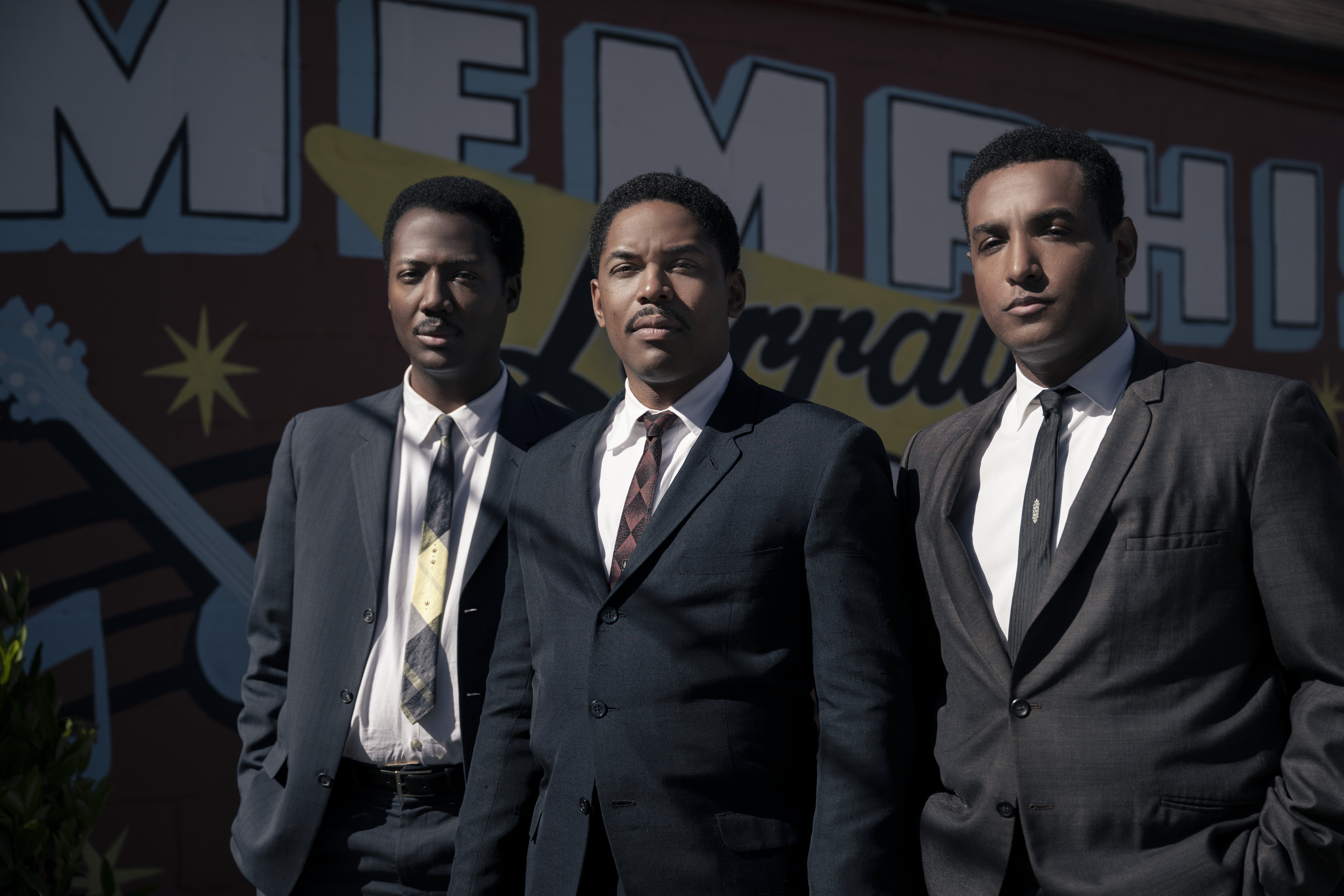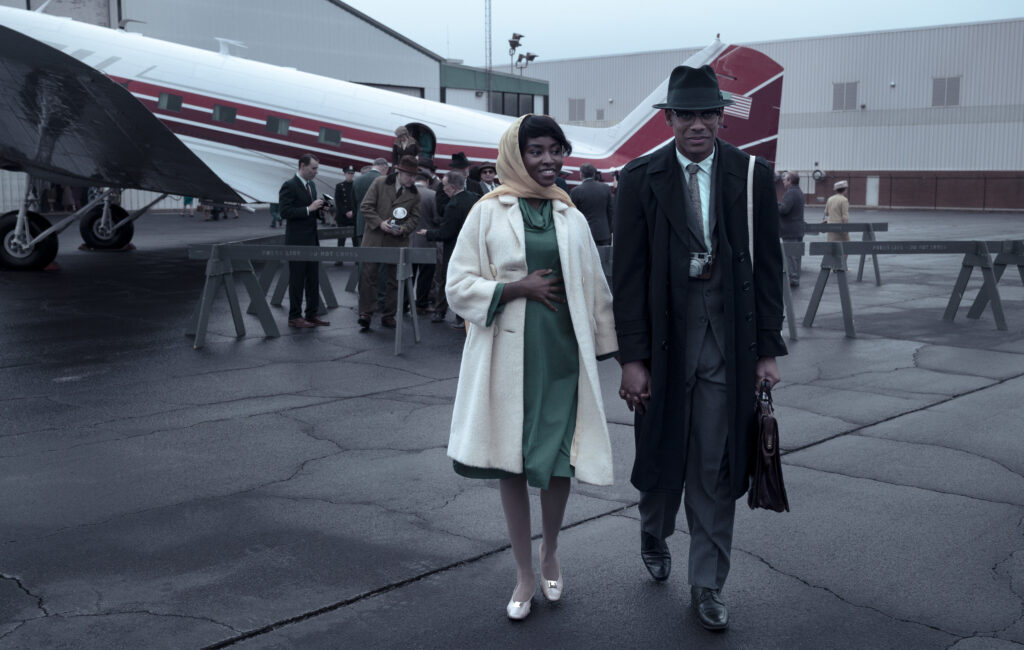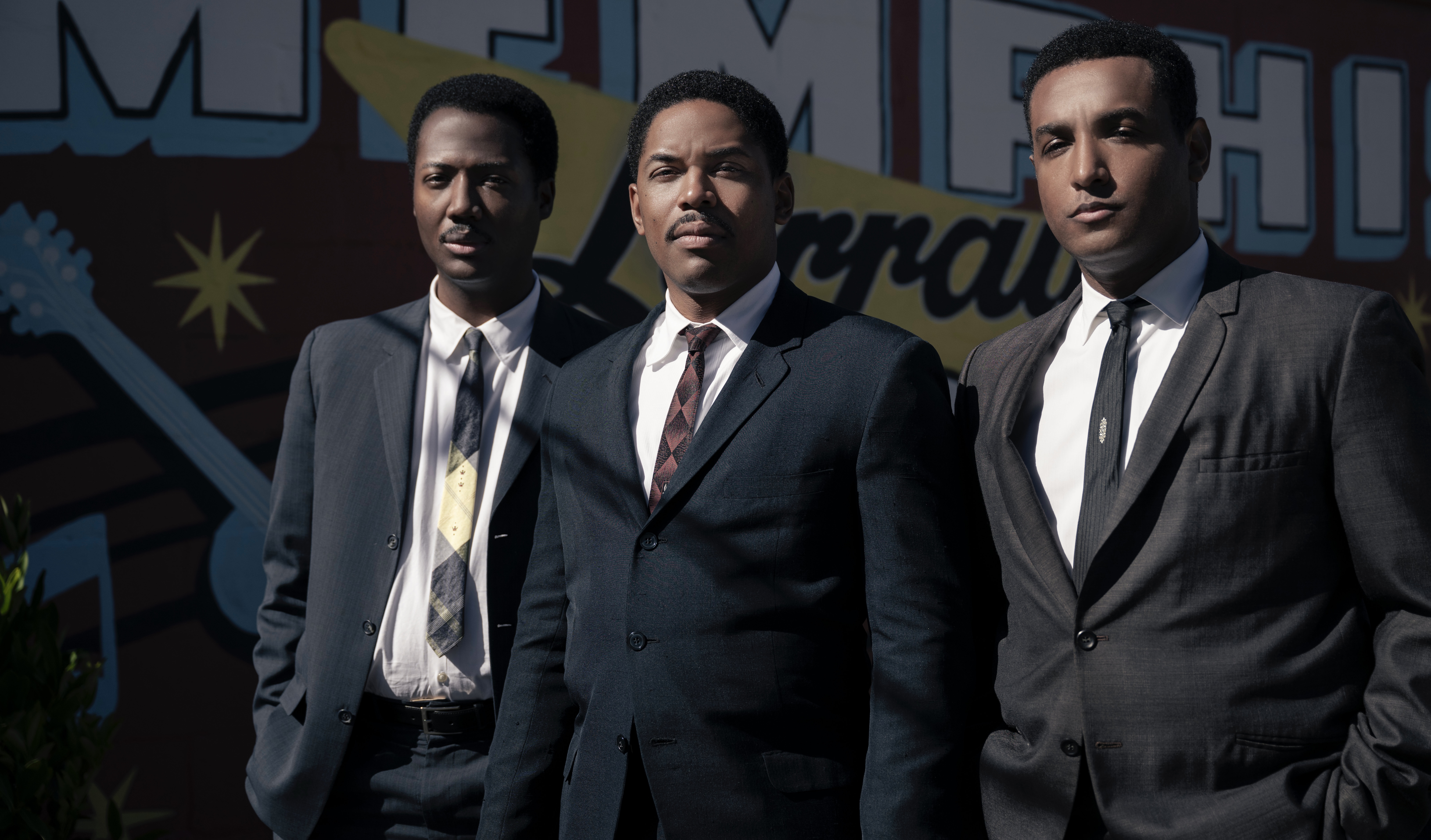Civil rights icons Dr. Martin Luther King Jr. and Malcolm X had different ideologies but also parallel lives with similarities. Their histories are explored in National Geographic’s eight-episode “Genius: MLK/X” drama, starring Kelvin Harrison Jr. as King and Aaron Pierre as X. “Genius: MLK/X” (which is part of National Geographic’s anthology biography series about famous innovators) premiered on Feb. 1 and ABC televised the first episode. Two new episodes of “Genius: MLK/X” premiere on National Geographic every week until the end of February. After the episodes premiere on National Geographic, they are available the next day on Disney+ and Hulu.

“Genius: MLX/X” includes depictions of King (whose birth name was Michael King Jr.) and X (whose birth name was Malcolm Little) overcoming trauma in their youth—a suicide attempt by King; imprisonment for X—to become husbands, fathers, and leaders of their respective movements. Christian minister King believed nonviolent methods achieved civil rights goals. Muslim activist X believed in “any means necessary” when fighting for justice. At age of 39, they each died tragically from murder by gun violence: X in 1965 in New York, and King in 1968 in Memphis.
Unlike other screen dramas about King or X, “Genius: MLX/X” does not sideline their spouses but celebrates them as important influences. Weruche Opia portrays Coretta Scott King. Jayme Lawson has the role of Betty X, also known as Betty Shabazz. Other cast members who portray historical figures in the civil rights movement include Hubert Point-Du Jour as Ralph Abernathy; Griffin Matthews as Bayard Rustin; Richard David as Julian Bond; Erica Tazel as Ella Baker; Anwar Ali as Andrew Young; Millie Capellan as Jo Ann Robinson; Ja’Quan Monroe-Henderson as John Lewis; and Ron Cephas Jones as Elijah Muhammad, in one of the last roles that Cephas Jones had before he died from pulmonary issues in 2023.

A sneak preview of the first episode of “Genius: MLK/X” was shown at the 2023 Urbanworld Film Festival. Afterward, there was a Q&A with co-showrunner Raphael Jackson Jr., executive producer Gina Prince-Bythewood, executive producer Reggie Rock Bythewood, and co-showrunner Damione Macedon. Here is what they said.
There have been many on-screen portrayals of Martin Luther King Jr. and Malcolm X, but this is the first time their stories have been presented as a dual biography on screen. What inspired you to take this approach?
Bythewood: Gina and I were approached by NatGeo and the studio [20th Television] and a few other people. We were asked to do a narrative about Dr. King. Gina and I talked about it. We kind of liked the idea, but we felt it was missing something. And we sort of felt like you don’t get to have Dr. King without Malcolm X. They really liked [the idea]. They decided to rock that way, and we’re really happy.
This is the first thing that Gina and I produced where neither one of us wrote or directed it. We immediately thought of [“Genius: MLK/X” writer/executive producer] Jeff Stetson, who’s an amazing writer. He wrote a play that was very popular decades ago [in 1987] called “The Meeting.” It’s about a fictional meeting between Dr. King and Malcolm X.
We were blessed to have two showrunners. I was [busy] doing the second season of “Swagger.” Gina was doing this little movie in Africa [“The Woman King”]. We were really very happy for Damione and Raphael to take it on as showrunners. It’s a TV series, but we like to think of it as an eight-hour film.
Prince-Bythewood: It was our intent to take these two geniuses [King and X], these two icons off of the T-shirts and make them real. It was important for us, given the eight hours, to really dig into their lives. But also really important were [their wives] Betty and Coretta … and their impact on both men and the movement.
How did you decide which areas of Dr. King’s and Malcolm X’s lives to focus on and then bring these two separate biographical stories together?
Jackson: It was a conscious effort to get the story right. What we found was that both of them experienced parallels thematically in their lives that we really wanted to capture. We were able to break [the episodes] down into three chapters.
The first chapter is what we like to call “The Ascension Chapter.” This is where we find Martin and Malcolm ascending to be leaders of their specific movements.
The next chapter is “The Confrontation Chapter”: Now that they’re out in the forefront of their particular movements, they experience how hard it is to be the leaders.
The last chapter is “The Illumination Chapter,” where they are both illuminating to the trials and tribulations they’ve gone through in their journey.
What we found, as we dug into the source material and factual things that took place, was that both geniuses went through and experienced similar things along the way. By finding that viewpoint, it allowed us to really outline the story seamlessly and stay true to the message that they were both trying to convey.
Macedon: It was a deliberate approach to not look at these two men separately but look at them similarly from a thematic perspective. There was a four-year age difference between Martin and Malcolm, but as we broke their lives down, we noticed that they both became husbands around the same time. They both became fathers around the same time.
It allowed us to follow that road map and create a narrative. It gave us a great way to lay the story down and find a basis where we moved back and forth seamlessly in the storyline.
In your research, was there anything that surprised you?
Macedon: We all came into this [project] thinking we knew who these two men were. We were astonished daily that there were parts of their lives … and things that happened to them that we simply didn’t know. We began this process with a think tank. We gathered several scholars within the United States that have impeccable historical background connected to both of these men.
The story itself is based off of a [2020] book called “The Sword and the Shield” [by Peniel E. Joseph]. It’s a really powerful book that depicts Martin’s and Malcolm’s lives throughout their timelines.
Every single day [of the research process], it was like, “Oh, I didn’t know that.” That became the way we wanted to approach the series. For every single hour, we want our audience to have those “I did not know that” moments in the same way that we did. And by the end, have a little bit of a better understanding of who these two men were.
Can you talk about the casting process?
Prince-Bythewood: We loved casting this. Martin and Malcolm were really young. So often, when we see narratives with them, they’re cast much older. We really wanted to highlight that these guys were in [their 20s] when they started doing these extraordinary things, so it was important that our cast really reflected that age.
Kelvin Harrison Jr. is an incredible actor, and so is Aaron Pierre. And also their height. We know that Malcolm was very tall. Dr. King was not. We wanted to stay true to that as well, because that’s an important dynamic.
[Martin Luther King Jr. and Malcolm X] are iconic people. We all know what they look like. As long as the [actors] can embody who they were. When you keep watching [“Genus: MLK/X”], our hope is—because it happened with all of us [executive producers]—that you stop seeing the actors. They just embody the [real] people very well. It takes courage for young actors to take on icons, but they were all for it.
What is the biggest takeaway of what you learned about Dr. King and Malcolm X from working on “Genius: MLK/X”?
Jackson: Just how involved they were involved in each other’s lives, even though they physically weren’t in each other’s orbit. They were both so influenced by what the other was doing, that it almost influenced what they were doing. … We’ve all seen the Martin Luther King Jr. story individually. We’ve all see the Malcolm X story individually. But when you see [these stories] together, it makes complete sense.
Macedon: It was the small things. They were both obsessed with ice cream. I didn’t know that. I was pleasantly surprised. They laughed. They danced.
They were flawed men. That was the fun stuff for me: The things that don’t land on T-shirts or are not clipped out and put on [social media] with just a quote. It was fun to see them as people who fall down and get back up. I think it attracts us to them more. They’re more like us than not like us.
Bythewood: I thought I knew a lot about Dr. King. I didn’t know that [Dr. King’s first] name was changed. And that he tried to kill himself [when he was 12].
Prince-Bythewood: When you grow up, you think you have to choose: Support Dr. King or support Malcolm. At different points in my life, I was all about Dr. King or all about Malcolm. In doing this [“Genius:/MLK/X”] … I learned how much more militant Dr. King was—more than most of us know.
There’s so much more to Malcolm X as well. One of our consultants in the think tank, who’s one of the producers and Malcolm’s [eldest] daughter, is Ambassador [Attallah] Shabazz. It was really important to her to show the softer side of Malcolm. He laughed a lot. He and Betty loved each other. … At the end of this [series], you don’t really feel like you have to choose.








